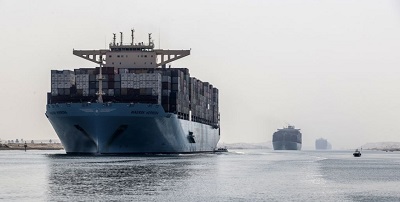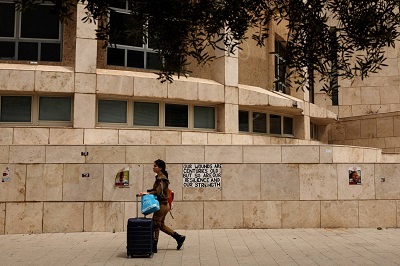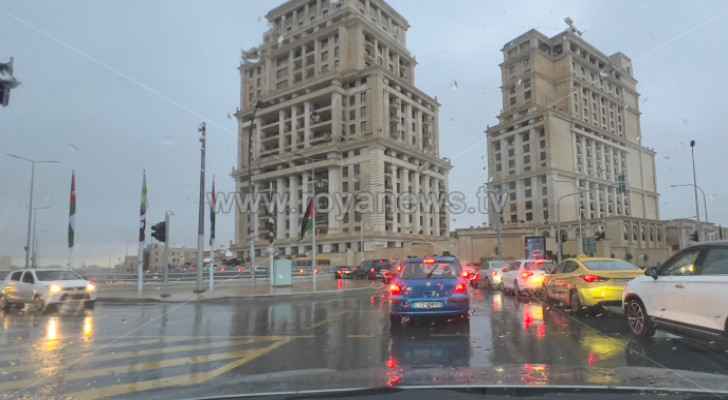The cost of war: Studying impacts of Israeli war on Levantine economies

AFP
AMMAN — Entering the sixth month of the Israeli war on Gaza, the region impatiently awaits for a permanent ceasefire, de-escalation and de-radicalisation. Meanwhile, different pundits try to comprehend the repercussions of the Israeli aggression on the Gaza Strip and the West Bank because this humanitarian crisis in Gaza directly affects the whole region and the danger of further escalation remains realistic.
It is estimated the annual GDP of Gaza declined by $655 million last year which is equivalent to 24 per cent.
“If Gaza is to emerge with a viable economy, the military confrontation should end immediately, and reconstruction should begin in earnest and without delay. The international community needs to act now before it is too late,” the report of the United Nations Development Programme (UNDP) recommended.
In the West Bank, the situation has seriously deteriorated and the socio-economic consequences for the occupied Palestinian territory are severe.
“The war on Gaza has impacted the region’s economies to differing degrees,” said the Jordanian economist Riad Khoury, professor and former dean of the business school at the Lebanese American University in Beirut. He noted that Gaza and Israel are heavily affected, as are to a lesser extent Lebanon and the West Bank.
The conflict also indirectly impacts other countries including Jordan, but Egypt more so, Khouri continued adding that the latter suffers from a major recent drop in Suez Canal transit as an indirect effect of the war and conflict between Houthis and the US-British coalition.
“The country [Egypt] has huge foreign debt indirectly exacerbated by the Gazan crisis and this is significant since Egypt has the third largest Arab economy,” said Khouri.
Talking about importance of Egypt, Khouri emphasised the biggest population in the region and Egypt’s political, scientific and cultural influence within the Arab world.
Regarding Jordan, “The ongoing hostilities have negative effect on the tourism sector in the West Bank and Jordan,” Khouri said, adding that 2023 was the most profitable for the Jordanian tourism industry. “It was a record year in the number of tourists visiting Jordan and it was the record year in terms of the income from the tourism sector.”
The impact of the war is felt very much in southern Lebanon which lost 50 000 trees in the last weeks due to the exchange of fire between IDF and Hizbollah, and drastically affects the local agriculture, Khouri stressed.
“White phosphorus thrown by the Israeli forces has a negative consequence on the Lebanese agricultural soil,” he said.
In addition, the disruption of maritime trade in the Red Sea has negative consequences for the trade via Suez Canal, which is one of the main trade arteries.
“Consequently, the traffic in the Suez Canal dropped last month by 40 per cent,” Khouri highlighted.
The drastic situation in Gaza is affecting prices of imported goods in the Arab countries. However, the economic weakness is felt lest in the Gulf Cooperation Council states and the Maghreb, the Khouri said.
“It is impossible to predict the outcome of any war,” Khouri said, adding that the current conflict can finish within a few days or it can last for months or years.
Latest News
 Hamas Says it Received Israel's Response to Ceasefire Proposal
Hamas Says it Received Israel's Response to Ceasefire Proposal
 Jordan to experience atmospheric instability, rainfall
Jordan to experience atmospheric instability, rainfall Senate Speaker delivers speech in Istanbul during Parliamentarians for Jerusalem conference
Senate Speaker delivers speech in Istanbul during Parliamentarians for Jerusalem conference US backs away from sanctioning “Israeli” army battalion over human rights violations
US backs away from sanctioning “Israeli” army battalion over human rights violations “Israeli” woman seriously wounded in stabbing operation
“Israeli” woman seriously wounded in stabbing operation
Most Read Articles
- Senate Speaker delivers speech in Istanbul during Parliamentarians for Jerusalem conference
- Russian Missiles Hit Ukrainian Energy Facilities
- 7 dead, 32 injured in road accidents countrywide yesterday - Traffic Department
- Working on family voting by doubling number of mixed polling centers - says IEC president
- Hamas Says it Received Israel's Response to Ceasefire Proposal
- Jordan to experience atmospheric instability, rainfall
- Israeli Occupation aggression on Gaza continues for 204th day
- 'Biden may limit arms sales to Israel over Rafah operation,' says US official
- Drone Attack on Iraq Gas Field Kills 4 Yemenis
- PSD warns of unstable weather conditions